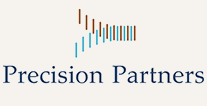Precision Partners sat down with two workgroup leads from The University of Texas MD Anderson Cancer Center to discuss their advancement Constituent Relationship Management (CRM) Implementation. We discussed the responsibilities of being a workgroup lead, challenges they overcome regularly, and important qualities to have to succeed in this role.
Here’s the inside scoop.
How would you describe your responsibilities as a Workgroup Lead for your CRM Implementation?
“I would say my responsibilities include a lot of information gathering and coordination,” said Angela Hernandez, Associate Director at MD Anderson, Business Solutions Team. “I act as a liaison between our company and Precision Partners. I am often fielding questions and passing information back and forth.”
Hernandez is a marketing person by nature, which helped in the role as a workgroup lead. “When I started at MD Anderson, I was on the marketing team. So I understand how to communicate based on my audience,” Hernandez said. “My work in marketing has helped me by knowing who I am working with, how they respond in their preferred communication styles, and translating information in a way that will be more readily received. This job is a lot about the relationship, understanding audiences, and communicating effectively.”
For Senior Director of Prospect Development at MD Anderson, Michele Armstrong says one of the primary responsibilities of her role is remaining engaged. “This role requires me to stay engaged. It is a significant time requirement on that part—working with others to engage their team members, prompting questions, and assisting,” Armstrong said. “There’s also a lot that goes on outside of the workgroup—like tactical pieces, making decisions about data, and data validation—that must be completed by engaging people in the workgroup and outside of the meetings in the development department.”
What do you find most challenging in this role?
“Communication is the most challenging part,” Hernandez said. “Communication styles vary greatly depending on who you are talking to. This requires an understanding of how others prefer to receive information, how to be clear while also being on top of deadlines, and making sure everyone is doing what they need to do when they need to do it. It can be even more challenging if you’re in a group of different titles or teams—especially if you’re a workgroup leader instructing someone who has been there a lot longer than you.”
Michele says a challenging aspect of her role is working in parallel. “Multiple streams and workgroups are going on at the same time. I’m leading one, and I’m also a member of another. There may be six or seven workgroups happening simultaneously,” Armstrong said. “Working horizontally and understanding the decisions made that may impact this group can sometimes feel siloed—we’re required to lead and facilitate decisions without having the clearest picture of everything going on.”
For example, “decisions might be made regarding the stewardship and donor cycle that affect how we engage our donor base and make them feel appreciated in their giving. Some of the decisions made can impact our overall strategy,” Armstrong said. “Understanding the interconnectedness of it all can be a challenge. This simply means I must reach out and ask questions, but sometimes I don’t know what I don’t know.”
What skills or abilities do you feel are a must-have for this role?
“Being a subject matter expert in whatever you’re leading is crucial,” Armstrong said. “You must understand the work and processes. Additionally, having good working relationships with members—not just within the working group but also with leadership. Critical thinking and the ability to see key components and details are important—you need to be able to look at the bigger picture and its impact. As a workgroup lead, I often help my team understand the “why,” which helps them avoid getting bogged down in the day to day.”
Being a subject matter expert requires more than product knowledge. “My job is not to work with the CRM but to be an expert in our business within our unit,” Armstrong said. “It’s a relational database, and I must know how it impacts the input and output of our work. I understand the business and have a good working knowledge of how it impacts the system. This takes years to acquire—you can’t have someone new in this role—most of our team leads have been with the institution for a while and have institutional knowledge in addition to knowledge of the work and the system.”
Other essential skills or abilities for the workgroup lead role are “being organized, understanding time management—not just for you but other individuals—and again communication,” Hernandez said. “Communication is so important. People need to know what they need to do. Clear communication can help eliminate excessive back and forth questions. If people understand their responsibilities upfront, there isn’t time spent answering those kinds of questions. Sometimes this looks like communicating with a colleague in a different position or higher title—you’ll need to take the initiative to manage up.”
Another essential skill is the willingness to advocate. “A workgroup lead should not be afraid to advocate for both sides of the equation—communicating to your external partners, like Precision Partners, but in turn, being able to take the response back to colleagues in a way they feel they’ve been heard, and their questions or concerns have been represented. We don’t want anyone to feel that they’re not being heard.”
What are some of the behind-the-scenes contributions you are making in your role that no one even knows you are doing?
“There’s a lot of engagement between several leadership team members to make sure we’re aligned philosophically in our decisions,” Armstrong said. “I want to make sure every decision is aligned with our leadership’s expectations—I’m frequently having conversations to ensure we’re in alignment. But, again, this is a relational aspect, and I want to ensure I am building that relationship but also locked in step with their expectations.”
“For me, it is probably the communication. In the workgroup that I am leading currently, sure they’re aware that I am the workgroup lead, but I don’t think they realize necessarily the discussions that are made,” Hernandez said. “I’m working with Precision Partners to develop a communication plan to present the information to our team clearly and concisely so they will receive the information effectively. We’re all very busy people, and we want to make sure that everyone is on the same page. At MD Anderson, our teams vary. There are not many times you can get a large group of people physically together, so having that information communicated in a digestible way is valuable. That’s something I work on with Precision Partners; I don’t think everyone realizes the time it takes to do that.”
What advice would you give your colleagues in advancement in preparing for this role at their institution?
“The best advice would be to come at it from a realistic point of view and make sure you are as organized as possible,” Hernandez said. “When it comes to managing others on different teams, let them know you are open to them asking questions and making sure they know how to contact you. This helps to build trust. When your group trusts you, that makes the whole process easier for everyone involved.”
“I didn’t quite understand this until a decent way into the project but understanding expectations from phase one is important. For example, I didn’t understand the expectation of having business as usual on our Go Live date. I was under the assumption that we needed to take advantage of new capabilities and streamline in addition to business as usual,” Armstrong said. “The expectations, at least for us, was that this doesn’t have to be a perfect product on day one, but we do need business as usual with no disruption. That may not be the same in every institution, but you should aim to have a philosophical understanding of what leadership expects for your project. This will help you fully understand and meet the expectations to the best of your ability.”

